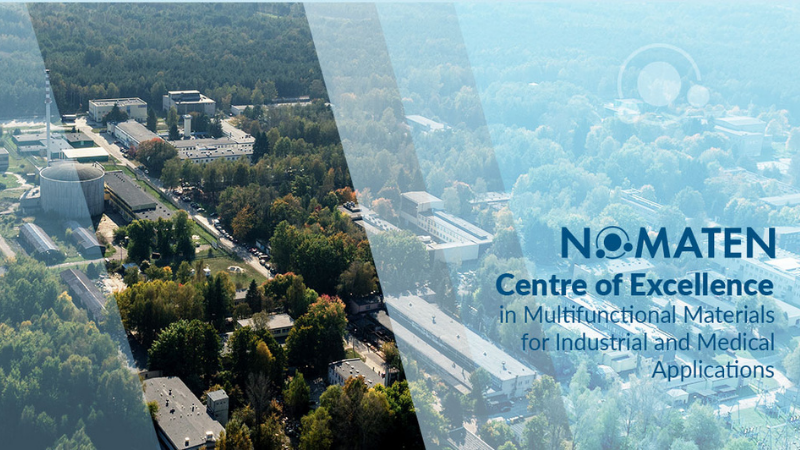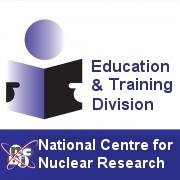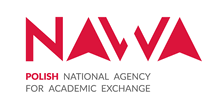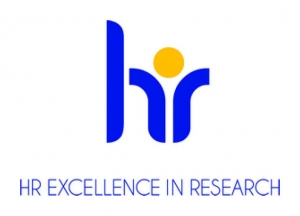Postdoc - Advanced Multifunctional Materials Science | MAB NOMATEN
2021.10.25 16:46 - Anna Sawińska

Postdoc positions
Advanced Multifunctional Materials Science
at NOMATEN Centre of Excellence,
National Nuclear Research Centre (NCBJ),
Poland
NOMATEN Centre of Excellence (CoE) is formed through a scientific partnership between the National Centre for Nuclear Research (NCBJ-Poland), the French Alternative Energies and Atomic Energy Commission (CEA-France) and the Technical Research Centre of Finland (VTT-Finland) with joint financial support from the Foundation for Polish Science (FNP) and the European Commission. It is currently composed of 5 Research Groups and is directed by prof. Mikko Alava. NOMATEN focuses research on the characterization, analysis and development of advanced multifunctional materials, specifically those designed to work in extreme conditions, with primary examples being radiation, high temperature and corrosion. We also conduct research on development of novel diagnostic and therapeutic approaches, based on radiopharmaceuticals, to defeat cancer disease.
More about NOMATEN CoE and the detailed project descriptions at http://nomaten.ncbj.gov.pl
Multiple positions exist on the postdoctoral levels in NOMATEN Research Groups conducting research in the field of:
1. Complexity in Functional Materials: mechanical properties (yielding, time-dependent fracture) to the role and understanding of the microstructure in determining such properties. We also work on Machine Learning approaches in complex materials. Key words of importance are metal alloys, and High-Entropy Alloys in particular.
Preferred background: statistical mechanics, computational simulations, machine learning.
Contact person: prof. Mikko Alava (mikko.alava@ncbj.gov.pl)
The Complexity in Functional Materials group is looking for 2 post- doc (full time position)
2. Functional properties group is studying impact of radiation damage on the mechanical and structural properties. Specific topics covering materials devoted to Gen. III+ and IV nuclear reactors like: stainless steels, ODS and HEAs, Al2O3 coatings, zirconium and nickel alloys will be proposed. Experiments will be conducted on ion damaged materials and at their working temperatures by using specific techniques like: nanoindentation, X-ray diffraction, tensile tests and Raman spectroscopy. Structural properties will be determined by means of SEM/FIB/EBSD/EDS and TEM techniques.
Manufacturing and mechanical properties of ODS-CSA materials. It is projected that nano-sized oxide particles introduced into CSAs systems may significantly improve their functional properties. Resulting oxide dispersion strengthened (ODS) concentrated solid-solution alloys (ODS-CSAs) may exhibit substantial performance improvement in extreme environments. Such systems may possess superior performance because they combine the advantages of CSAs and ODS materials. Full time position will be devoted to analysis/characterization of such materials. Understanding of the radiation damage resistance is one of our prime goals.
Second position will be devoted to studying functional properties of different bcc-type materials submitted to ion irradiation process. The goal of this work will be develop fundamental understanding why refractory HEAs with bcc lattice show less ductility, but they appear to have much higher yield strengths then fcc-type HEAs, even at high temperatures. Understanding of the impact of radiation damage will be one of the major challenges in this work. Candidate will be responsible for conducting complex mechanical and structural experiments by using nanoindentation, XRD and TEM devices on ion irradiated materials.
Mechanical property analysis for external partners (post-doc/senior-scientist) – the employed person will be responsible for conducting mechanical and structural analysis of the materials requested by the industrial partners. Most of the tests will be performed according to international standards. This person will also support head of the group in the organization of the work.
Preferred background: Materials science, materials engineering, nuclear engineering, mechanics.
Contact person: dr. hab. Lukasz Kurpaska (lukasz.kurpaska@ncbj.gov.pl)
3. Materials Structure, Informatics and Function: emulating the behaviour and performance of materials in mechanical loading applications, using multiscale material simulations, machine learning methods and material characterization techniques. Methods of interest: Ab-Initio Density Functional Theory (DFT), Molecular Dynamics (MD), Discrete Dislocation Dynamics (DDD), and Continuum phenomenological Plasticity and Damage (CPD) modeling.
Preferred background: Multiscale modeling, mechanical characterization, applied physics/math, machine learning.
Contact person: dr. Stefanos Papanikolaou (stefanos.papanikolaou@ncbj.gov.pl)
The Materials Structure, Informatics and Function group is looking for 3post- doc (full time position)
4. Materials Characterization (“process-structure-property”): The main goal of the group is to conduct advanced characterization of novel multifunctional materials at the atomistic level using state-of-the art equipment. The structural characterization of the studied materials under extreme conditions fills the gap between simulations and functional properties of the material, by verification of the structural model, analysis of material response on various conditions occurring in real environments, analysis of mechanisms of damage accumulation and studies of microstructure influence on the mechanical properties. Employed person will be responsible for participation design, execution and optimization of experiments focused on advanced characterization, analysis and development of advanced multifunctional materials, specifically those designed to work in extreme conditions (radiation, high temperature and corrosion) with close collaboration with functional and numerical Groups of CoE using a wide range of techniques, including SEM/FIB/EBSD/EDX tools, TEM analysis, as well as advanced and in-situ X-ray diffraction and Raman spectroscopy. We expect the candidate to be experienced in SEM-FIB operation including EDS and EBSD analysis, structural analysis by XRD technique (in-situ at high temperature) or structural analysis by Raman spectroscopy in application to material science (joint experience would be an asset).
Preferred background: Physics, materials science, materials engineering, nuclear engineering.
Contact person: dr. Iwona Jóźwik (Iwona.Jozwik@ncbj.gov.pl)
The Material Characterization group is looking for 3 post-docs (full time position).
Our ambition is to build a team composed of world-leading researchers and young, highly motivated people who are passionate about multifunctional materials science.
Outstanding candidates are also encouraged to and supported with parallel applications to the Polonez Bis COFUND Fellowship call organized by the National Research Council (polonezbis.eu).
Location:
National Centre for Nuclear Research (NCBJ), ul.Andrzeja Sołtana 7, 05-400 Otwock, Poland
(Suburb of Warsaw, efficient and free dailybus transport service provided).
Gross Salary:
11,250- 15,000 PLN per month (at current exchange rate2,400- 3,200 € per month); the details in each case depend on qualifications and experience, and the compensation is composed of the base salary, seniority addition, functional addition and project bonus)
Read more about contributions in Poland at https://old.ncbj.gov.pl/en/hrcareer/contributions-poland
We offer:
2 years initial employment with extension after a positive evaluation.
Work in international networks with research institutes and industrial companies.
Access to the research potential of NOMATEN’s three partners between NCBJ (Poland), CEA (France) and VTT (Finland).
Travel funds for participation in conferences and collaboration, attractive working conditions, atmosphere of teamwork, family-friendly environment with flexible working hours. support of an experienced local team in legal, financial and organisational issues as well as logistic support and advice related to working in Poland - enabling smooth relocation and equal opportunities.
Required documents:
- Cover letter that explains the motivating factors for considering the position(max. 1 pp)
- CV with complete publication list
- Brief description of important scientific achievements and scientific outlook (max. 2 pp)
- Two references letters arranged by applicants and directly submitted by the letter writers before the application deadline.
- PhD diploma copy/scan
The recruitment is open to candidates who, at the time of submitting their applications, do not have a diploma confirming PhD, but who have a fixed date for obtaining this title before the planned date of employment. In this case, it is necessary to provide documents that prove that.
- As an attachment to your application please sign and enclose the following declaration: I agree to the processing of my personal data included in this application for the needs necessary to carry out the recruitment.
Applications electronic form in English should be submitted to: magdalena.jedrkiewicz@ncbj.gov.pl.
Candidates may be asked to provide additional documents. We reserve the right to contact only selected candidates and the right to inform about the decision to fill the post only to the selected candidate.
Candidates may be asked to provide additional documents. In the selection process, short-listed candidates will be interviewed in person or remotely.
Position starts on: February 1st, 2022 (at the earliest).
INFORMATION CLAUSE ON PERSONAL DATA PROCESSING:
1. The controllers of the personal data processed during the recruitment process are:
1) National Centre for Nuclear Research, ul.Andrzeja Sołtana 7, 05-400 Otwock and
2) Foundation for Polish Science, ul. I. Krasickiego 20/22, 02-611 Warszawa.
2. The data protection officer can be contacted by using the following address:
1) Personal Data Protection Officer, National Centre for Nuclear Research,
Sołtana 7, 05-400 Otwock, Poland
2) iod@ncbj.gov.pl
3. Providing data contained in recruitment documents is a condition for applying for a job at NCBJ.
4. Processing of the personal data for the purpose of filling the position listed in this announcement and to conduct subsequent recruitment is done on the basis of expressed consents. You have the right to withdraw your consent at any time, without affecting the lawfulness of the processing based on consent before its withdrawal.
5. Your personal data will not be made available to other data recipients.
6. Your personal data will not be transferred to a third country or to an international organization.
7. No automated individual decision-making and profiling as referred in Article 22 (1) and (4) GDPR is done during recruitment conducted by NCBJ. This means that no decisions regarding job candidates are made automatically and that no job candidate profiles are made.
8. In the case you have been unsuccessful in applying for the position listed in this announcement and you haven’t given consent to store the collected personal data in the NCBJ recruitment database, your data will be erased no later than 12 years from the completion of recruitment process, but no longer than the date of the end of the durability period of the project, which will find its basis in the provisions governing project financing.
9. You have the right to access your personal data, request its rectification or erasure. Filing a request to erase data is tantamount to withdrawal from the recruitment process. You have also the right to request restriction of processing in cases specified in Article 18 GDPR.
10. You have the right to lodge a complaint with a supervisory authority (President of the Office for Personal Data Protection) about unlawful processing of your personal data. The right to file a complaint only concerns the lawfulness of the processing of personal data, not the recruitment process.
The National Centre for Nuclear Research is awarded by “HR Excellence in Research”. Recruitment is based on OTM-R system (Open, Transparent and Merit-based recruitment practices in Research Performing Organisations).
This project has received funding from the European Union’s Horizon 2020 research and innovation programme under grant agreement No 857470 and Foundation for Polish Science International Research Agenda PLUS programme grant No MAB PLUS/2018/8 co-financed by the European Union under the European Regional Development Fund the Smart Growth Operational Programme.













